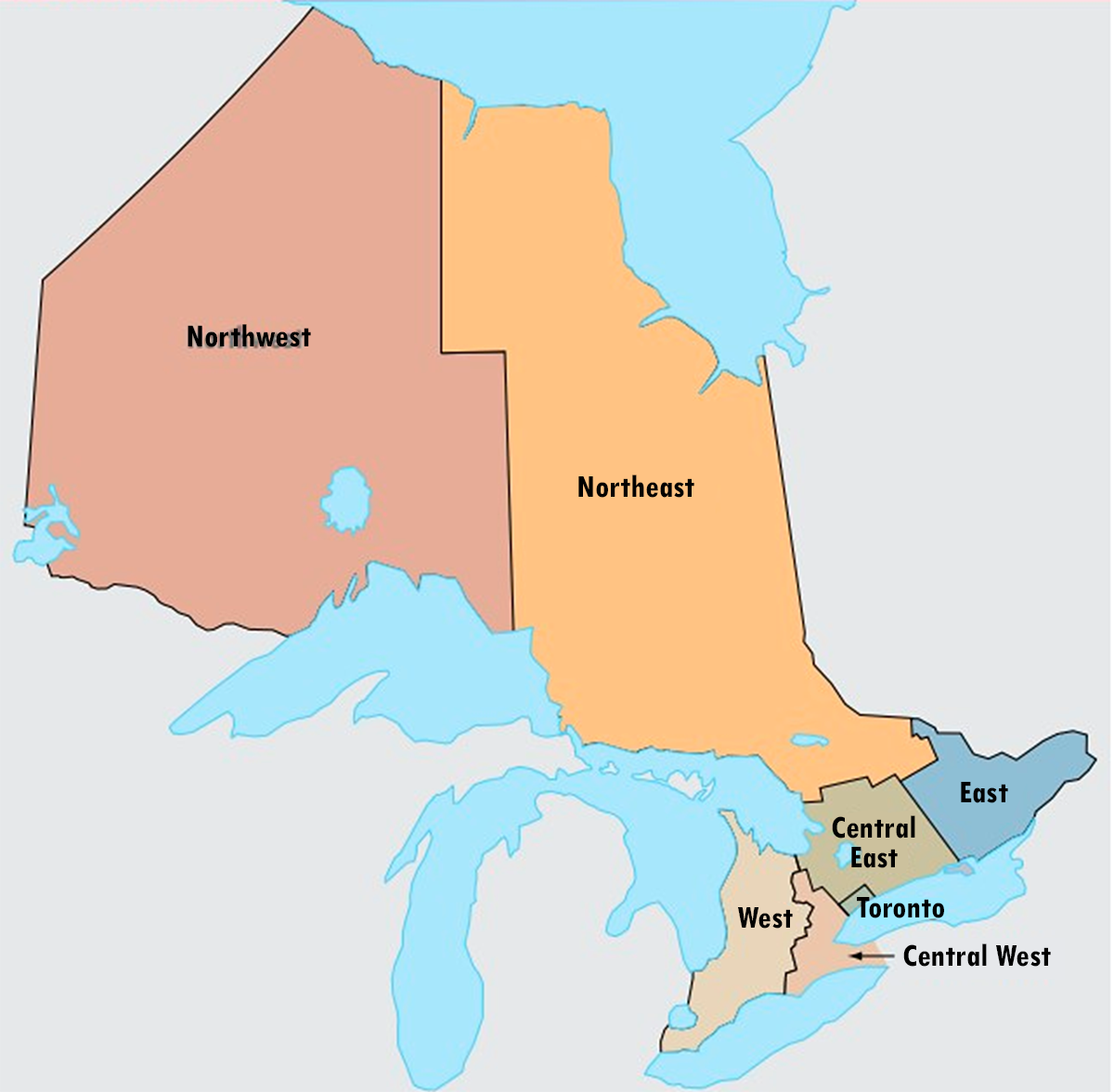Introduction to the Court Services Division
Our mission
The Ministry of the Attorney General is responsible for administering justice in Ontario. Within the ministry, the Court Services Division is responsible for the administration of the courts.
The mission of the Court Services Division is to modernize the delivery of accessible and accountable court services and support an engaged, professional and client-focused workforce that works collaboratively with justice participants to inspire public trust.
Our vision
A modern and professional court service that supports accessible, fair, timely and effective justice services.
Our values
- collaboration
- respect
- innovation
- professionalism
- service excellence
- inclusion
- accountability
- integrity
Court Services Division Strategic Plan
The Court Services Division’s Strategic Plan was launched in the fall of 2014 and revised in 2017. It outlines our division’s vision, mission, values (see above), strategic goals and our key priorities. The plan aligns with and supports the Ministry of the Attorney General Strategic Plan and focuses on our division’s vision for the future.
| Strategic goal | Court Services Division priorities |
|---|---|
| Fair and accessible justice system |
|
| Become an employer of choice within the OPS |
|
| Promote accountability and value for money |
|
Role of the Assistant Deputy Attorney General (ADAG)
The ADAG of CSD oversees the administration of Ontario’s courts and is responsible for legislative, regulatory and operational policy and program development related to improving the court system.
Court Services Division organization
- Assistant Deputy Attorney General's Office
- Regions
- East
- Central East
- Toronto
- Central West
- West
- North East
- North West
- Corporate Branches
- Corporate Support Branch
- Business Planning and Support
- Infrastructure and Facility Planning Unit
- Workforce and Strategic Planning Unit
- Management Information Unit
- Program Management Branch
- Services Support (Family Mediation and Information, Provincial Offences Act, Court Interpretation)
- Program Support (Court Reporting, Provincial Jury Centre, WRITs)
- Judicial Library Services and Forms
- Operational Support Branch
- Counsel
- Operational Support
- Corporate Support Branch
- Regions
Download printer-friendly organization chart (PNG).
Regional structure
For the provision of court services, the division is organized into seven administrative regions. Each region is managed by a Director of Court Operations who reports to the Assistant Deputy Attorney General of Court Services Division. Regions are responsible for:
- delivering local criminal, civil, small claims and family court services as well as providing frontline services to the public at court counters
- maintaining records, court recordings, files, exhibits, and databases
- providing judicial support services, including courtroom and administrative support
- managing and supporting juries
- overseeing the enforcement of court orders
- managing and overseeing fines, fees and trust funds
- providing support for local court security committees, emergency management planning and business continuity priorities and projects
- managing regional stakeholder relationships and communications on local and regional matters
- implementing divisional modernization initiatives at courthouse locations
- reporting on monthly/annual performance measures and key performance indicators (KPIs)

CSD corporate structure
CSD also consists of three corporate branches, each of which is managed by a director who reports to the Assistant Deputy Attorney General of Court Services Division. The corporate branches are responsible for:
Corporate Support Branch
- business planning, controllership/audit and financial reporting for expenditures and revenue
- infrastructure and facilities planning
- workforce and strategic planning
- management of court operational information and data
- centralized front-line services, such as: Defaulted Fines Control Centre, bail & restitution and deputy judge per diem/expense processing
Operational Support Branch
- legislative and regulatory changes with respect to the criminal, civil and family justice systems, including participation on Civil and Family Rules Committees
- legal support and advice in all practice areas
- operational policy, program development and justice reform strategies in all practice areas
Program Management Branch
- legislative and regulatory changes with respect to the criminal, civil and family justice systems, including participation on Civil and Family Rules Committees
- legal support and advice in all practice areas
- operational policy, program development and justice reform strategies in all practice areas